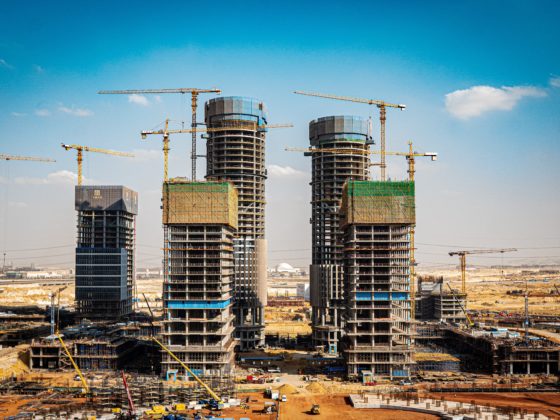On 20 June 2021, the Japanese government ended a national state of emergency that had lasted since April, lifting it in all prefectures except Okinawa. This, the third amendment made to a policy that has so far not been able to hold back a growing COVID-19 outbreak, has reinforced a growing sense that Japan’s COVID-19 policymaking lacks both efficacy and consistency.
The extension of the state of emergency is the result of a continued increase in the number of new COVID-19 cases in the country. Official data from the Ministry of Health, Labor, and Welfare (MHLW) shows that the number of new daily infections hit 7,057 – of which 969 were in Tokyo – on 12 May 2021, the highest daily tally since January 2021. The rise came despite a previous state of emergency enforced in the four prefectures of the greater Tokyo area between January and March 2021.
While the administration of current prime minister Yoshihide Suga struggles to contain the outbreak, the worsening infection rate is sapping public confidence in the effectiveness of the government’s constantly changing COVID-19 policies. This, in turn, could spell trouble for the country’s business environment further down the road.
Slow COVID-19 Response, Growing Public Anger
Though the COVID-19 caseload continues to rise, the country’s testing and vaccination efforts remain sluggish. The same MLHW data shows that the country – which has a population of more than 120 million – has only processed 15 million PCR tests since the start of the pandemic, as of 15 June 2021. Government data shows that as of 1 June 2021, only 14 million vaccine doses had been administered, mostly to medical workers and the elderly. On 15 June, the vaccination program for under-65s started in some places in Japan, but the schedule varies from city to city and prefecture to prefecture, as priority for receiving the vaccine is determined by local governments rather than the central government.
Public disapproval for the government’s handling of COVID-19 has surged in recent months. In a recent public opinion poll conducted by major news agency Jiji Press in May 2021, 64.6% of the respondents reported that they do not support the government’s current COVID-19 measures, up 11.6% from a month before. More than 70% of the respondents specifically expressed dissatisfaction with the slow speed of the vaccine rollout.
At the same time, the public is turning against the Japanese government’s insistence on kicking off the Olympics on schedule on 23 July. Opinion polls conducted in May 2021 by the major newspapers Tokyo Shimbun and Yomiuri Shimbun respectively show that 60.2% and 59% of Japanese residents support canceling the Olympics entirely. This represents a marked increase from the 39.7% reported in an April 2021 poll conducted by Jiji Press. However, the government’s decision may be partly driven by a potential fine of as much as JPY 1 trillion (USD 9.10 billion) from the International Olympics Committee if the event is canceled.
Political Changes and Potential Policy Instability
As a result of the perceived mishandling of the epidemic, public confidence in the Suga administration is decreasing. An opinion poll conducted by the public broadcaster NHK between 11 and 14 June 2021 shows that the government has an approval rating of only 37%, marking a 2% increase from the previous month, but still a far cry from the 62% recorded when Suga first succeeded Shinzo Abe in September 2020.
Given that the 2021 general elections are scheduled for 21 October 2021, Suga’s low approval rating has become a liability for his party, the ruling Liberal Democratic Party (LDP). Both the LDP and the opposition party are seizing opportunities to envision a “post-Suga” Japan. In a 26 May 2021 interview with the monthly news magazine Gekkan Hanada, Abe, who remains a member of the LDP, named four candidates from LDP he would support as successors to Suga. Yukio Edano, the founder and representative of the main opposition, the Constitutional Democratic Party, called for both the cancellation of the Tokyo Olympics and a potential vote of no confidence against Suga. Even LDP’s secretary-general Toshihiro Nikai, who has thus far supported Suga, broke with him by publicly questioning the current viability of hosting the Olympics.
Should both internal and external pressures force Suga to abandon his plan to continue leading the LDP into the October 2021 general election, Japan may return to the pre-Abe era, when the country rotated through a series of short-lived prime ministers incapable of introducing policy stability. Abe, whose leadership lasted for close to eight years until his resignation in September 2020, was Japan’s longest continuous prime minister post-World War II. On 25 May 2021, the weekly news magazine Friday even reported that 64% of LDP lawmakers favor Abe’s return as prime minister, suggesting a perceived lack of alternatives for ensuring stable leadership at the top.
Uncertainty for Foreign Investors
The volatility of Japan’s top political leadership may adversely affect foreign investors in Japan. Foreign investors in Japan can expect more political uncertainty in the coming months and years. Based on the first half of 2021, the Suga administration is likely betting that its strategy of making sudden policy changes will show results in the coming months in terms of suppressing the COVID-19 pandemic, thereby shoring up approval ratings and helping Suga assert political relevance. The extension of the current state of emergency was announced only days before its implementation, with little prior warning or explanation, suggesting the continued likelihood of sudden policy shifts in response to changes in the COVID-19 situation.
Inconsistent policymaking by an unpopular government is likely to have an impact on Japan’s overall business environment, and should give pause to investors in the Japanese market. Foreign investors, in particular, should consider that a change in policy can abruptly reshape the viability of any current projects or investments in the country.
The extent to which foreign investment is susceptible to sudden Japanese policy changes is clearly demonstrated by the foreign investment limits put in place in November 2019, which require foreign investors to have prior approval from the Japanese government in order to purchase more than 1% of “core” strategic Japanese firms – those involved in industries such as natural resources, energy, and high-tech development – in the name of national security. This policy had immediate real-world implications: a 10 June 2021 internal investigations report released by major electronics manufacturer Toshiba Corporation, for instance, found that the Ministry of Trade, Economy, and Industry actively throttled attempts by foreign investors to take over the firm. As a justification, the ministry cited Toshiba’s ongoing involvement in national security projects, including military contracts and the cleanup of the Fukushima Daiichi Nuclear Power Plant, which was damaged by the 2011 tsunami.
The detrimental impact of Japan’s policy inconsistency toward foreigners goes beyond matters of investments in domestic firms. The sentiment is also reinforced through Japan’s continued attempts to block foreign travel into the country. The latest international travel guidelines, released by the Ministry of Foreign Affairs on 11 June 2021, include stipulations preventing individuals from more than 100 countries from entering Japan. Japan also continues to insist on reviewing all applications for entry permits from foreign travelers on a case-by-case basis, including applications from jurisdictions that normally enjoy visa-free entry.
These uncertainties in the foreign investment environment in Japan are likely to continue if the Japanese government’s handling of COVID-19 and the Olympics continues to remain unpopular with the general public. The as-yet unclear future of the Suga administration and the lack of a clear successor – if any – after the October 2021 elections may introduce further volatility into policies that affect foreign investment. Foreign firms seeking to invest in Japan should be more cautious than usual in the coming months and years, and conduct careful pre-investment research into how their potential operations in the country might be impacted by quick-to-change policymakers – both before and after the pandemic.



